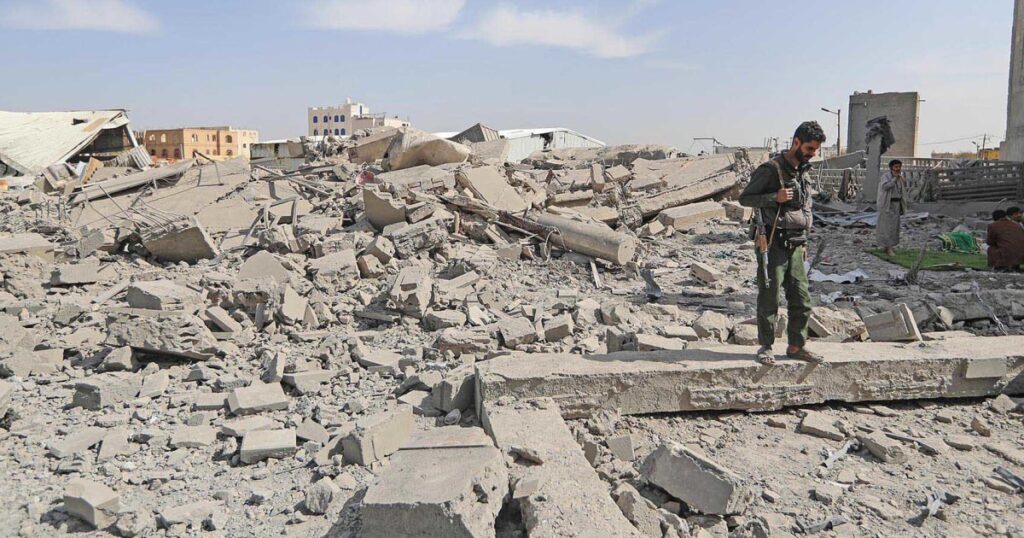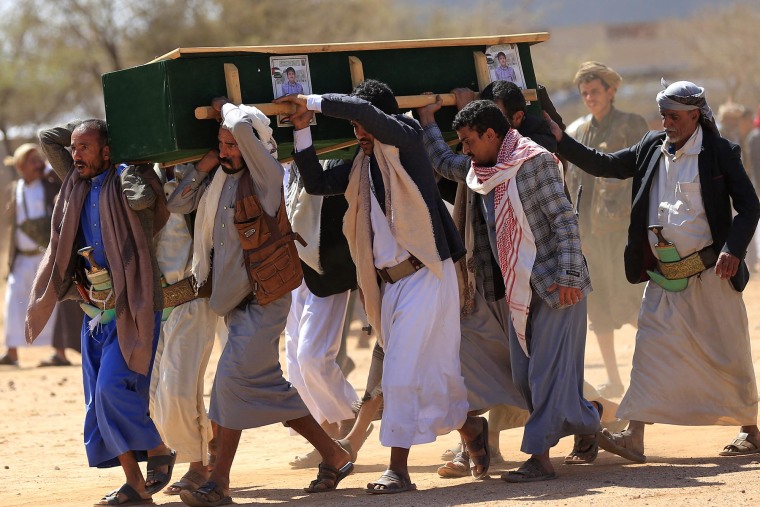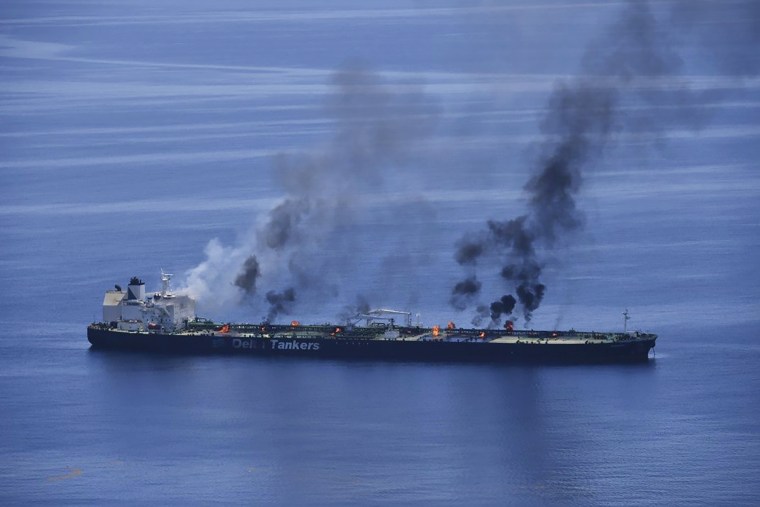
WASHINGTON — President Donald Trump’s fight against the Houthis never dealt a crippling blow to the militant group, but it has cost America more than $1 billion since March, including the thousands of bombs and missiles used in strikes, along with seven drones shot down and two fighter jets that sank, according to two U.S. officials briefed on the cost.
After weeks of operations by the United States, the Houthis seemed to still be able to strike outside Yemen, launching an attack that targeted Israel’s main international airport just this week. But the surprise deal that Trump announced Tuesday, in which the U.S. would suspend strikes and other operations against the Iran-backed Houthis in exchange for the group halting its attacks on U.S. ships, might be enough to declare mission accomplished, for now.
Details about the deal have been sparse. It is still unclear how it was made, how long it might last and what it meant in the long term for a conflict that began weeks after Hamas — which, like the Houthis, is backed by Iran — attacked Israel in October 2023.
What is known is that the agreement, which was brokered in part through the Omani government, according to two U.S. officials, pertains only to U.S. ships. The Houthis are expected to continue firing on Israel and on other countries’ ships.
“The administration was clearly looking for an off-ramp for this campaign against the Houthis,” said one U.S. official familiar with the military operations against the Houthis.
The Defense Department did not immediately comment.
Success in the fight since March was hard to measure: U.S. drones sent to determine if targets had been hit were often shot down by the Houthis and there were no American forces on the ground in Yemen who could assess the effectiveness of the campaign for the Pentagon, the official said.

But the effort under Trump came at great cost and was depleting American stockpiles, the two U.S. officials said.
Since March 15, when the Trump administration announced its current campaign against the Houthis, known as Operation Rough Rider, the Pentagon has expended roughly 2,000 bombs and missiles worth more than $775 million against the group, according to the two U.S. officials briefed on the cost. That includes hundreds of 2,000-pound bombs which can cost $85,000 each, at least 75 Tomahawks which run about $1.9 million each, at least 20 AGM 158 air launched cruise missiles at about $1.5 million per missile, and many other munitions.
The U.S. also spent at least $10 million moving at least two Patriot missile defense systems and military supplies to sustain the systems to the region by ship, according to a U.S. military tally provided to NBC News. That does not include the cost of equipment it moved by air. During congressional testimony last month, Adm. Sam Paparo, who heads U.S. Indo-Pacific Command, said the military used 73 C-17 flights in moving a single Patriot air defense system from his region to the Middle East. A C-17 costs about $27,000 per hour to fly, and the U.S. military moved two Patriot systems to the region.
But there was mounting concern that the Trump administration’s approach to fighting the Houthis would never be long term.
“Washington has little patience and a short attention span, and was unlikely to commit the resources and high-level attention necessary to see this campaign through to a meaningful outcome,” said Dana Stroul, who was the top policy official for the region at the Pentagon during the Biden administration.
If the agreement Trump announced Tuesday holds, it could allow the U.S. to justify suspending operations against the Houthis but it won’t likely change the reality that the Houthis can still be disruptive to shipping in the Red Sea.
“The Houthis will stop shooting at U.S. ships for some period of time,” said Stroul, now the research director at the Washington Institute. “But they will not stop firing missiles at Israel, commercial shipping will not return, and nothing will change in the Yemen civil war,” she said.

Hesitation under Biden and Trump
After the Houthis began attacking international shipping in the Red Sea following the Hamas attack on Israel in 2023, the Biden administration began a campaign against the Houthis to help restore what is called “freedom of navigation” — the ability of ships to move unmolested by hostile forces. Those operations did little to degrade the group, critics of the Biden administration’s approach have said.
In March, Trump administration officials announced they would increase pressure on the group. A second aircraft carrier and its attendant ships were brought into the region; NBC News reported last month that a number of missile defense platforms, including the two Patriot mobile missile defense systems and a Terminal High Altitude Area Defense, or THAAD, system, were also moved in.
Under Trump, Army Gen. Michael ‘Erik’ Kurilla, who leads U.S. Central Command, was given wide-ranging authorities to go after the group. Under then-President Joe Biden, many of Kurilla’s plans to attack the Houthis had not been approved.
But there were divisions within the Trump administration over just how far the campaign against the Houthis should go. As NBC News has previously reported, Biden officials had put together a blueprint for decimating the Houthis that required a long-term commitment, and felt they were in a position to put that blueprint into action at the start of this year, but held off to avoid boxing in their successors, and gave the plans to the incoming Trump administration.
While Trump and Defense Secretary Pete Hegseth spoke publicly of their ambitions to decimate the Houthis, U.S. and foreign officials said privately they didn’t think Trump had the stomach or the long-term commitment required to get the job done.
Divisions within the administration about the campaign spilled into public view after Jeffrey Goldberg, the editor-in-chief of The Atlantic, was inadvertently added to a Signal group chat with multiple top officials. The published logs of the group chat showed Vice President JD Vance expressing concern that Trump did not know what he was getting into and suggesting the U.S. had no business deepening its role in the area.
If the Houthis hold up their end of the deal, and refrain from attacking American ships, then it will be enough for the Trump administration to justify ending its role in the fight against the group, Stroul said.
“Washington can send a ship through the Red Sea and claim freedom of navigation has been restored.”
 Latest World Breaking News Online News Portal
Latest World Breaking News Online News Portal






